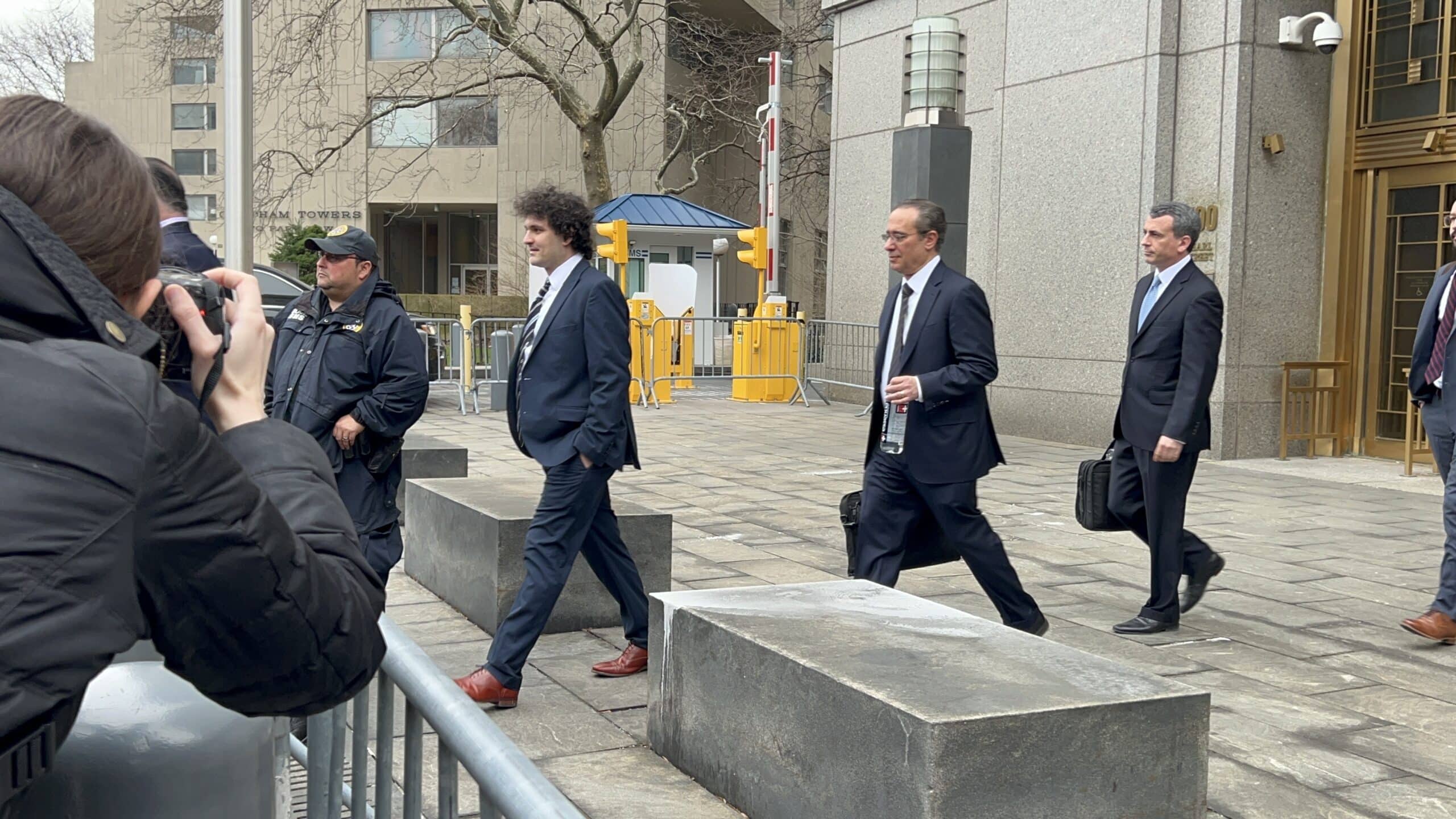On Thursday, March 28, Judge Lewis Kaplan of the Southern District of New York will sentence former FTX CEO Samuel Bankman-Fried for seven counts of various stripes of money laundering and fraud committed by his two companies, crypto exchange FTX and interlinked trading desk Alameda.
Read more: Where Is Sam Bankman-Fried Likely to Serve His Prison Term?
For a brief recap, back in November 2022, after months of the crypto market collapsing, a CoinDesk report revealed that Alameda was heavily invested in FTX’s own FTT token. The token’s price subsequently collapsed, and within days, FTX was bankrupt, with later proceedings confirming layer upon layer of misuse of customer deposits, appalling corporate controls, and just bizarre behavior among the 20-somethings running the twin firms.
Bankman-Fried’s arrest and trial have captivated the cryptosphere, Wall Street, and the world at large. The prosecution has asked for 40 to 50 years of jail time, citing the egregious nature of the crime as well as Bankman-Fried’s courtroom conduct. The defense, on the other hand, has asked for a five-to-six year sentence, pointing to the youth of their client, who they call “Sam” in recent filings, and the potential for FTX users to get their money back amid the company’s bankruptcy proceedings.
Read more: FTX Seeks Bankruptcy Court Approval to Sell $1.4 Billion Stake in AI Startup Anthropic
Unchained asked several attorneys with experience as both prosecutors and defenders in criminal cases, as well as other knowledgeable observers, to weigh in with their bets on Bankman-Fried’s sentence.
The Predictions
“I expect a sentence north of 20 years. I would expect the judge to do something in the 20-30 year range,” Sam Enzer, a former SDNY prosecutor and current chair of Cahill Gordon LLP’s Cryptocurrency and Blockchain Group, told Unchained. “This is a crime of historic magnitude. Bankman-Fried is in the small class of some of the most serious fraud offenders in our nation’s history, and I think his team recognizes that and can’t get around it.”
Enzer helped prosecute, among others, cybersecurity mogul turned crypto exile John McAfee, as well as the leaders of $25 million fraudulent initial coin offering Centra Tech. He also led the defense team for Ilya Lichtenstein and Heather “Razzlekhan” Morgan, who pleaded guilty to hacking BitFinex and then trying to launder what was $4.5 billion in crypto by the time the Justice Department got to them.
Ari Redbord, the head of legal and government affairs at blockchain analytics firm TRM Labs, agreed with Enzer. “We are likely looking at multiple decades,” Redbord wrote to Unchained. “A steep sentence by any comparison.”
Redbord formerly served as an advisor to the U.S. Treasury and was a U.S. attorney for the District of Columbia, where he led a number of money laundering prosecutions, including some of the first high-profile criminal cases to use blockchain tracing as evidence.
Noted white collar criminal and “pharma bro” Martin Shkreli, who served more than four years in prison after being convicted of defrauding investors in 2017, told Unchained that he thought SBF would get sentenced to 22 years in prison.
That’s “about halfway between what he is asking and the government,” Shkreli wrote.
Tiffany Fong, an influencer who is not an attorney but has been following Bankman-Fried’s case as closely as anybody, concurred with the multiple-decade prediction.
“I assume Sam will get more than 20 years largely because this is such a high profile case and Judge Kaplan seemed fed up with Sam’s antics before and during trial,” Fong told Unchained.
Meanwhile, Brian Klein, a partner at law firm Waymaker LLP, had the most pessimistic prediction for SBF’s sentence among experts we spoke to.
“I believe Judge Kaplan will sentence him to 40-50 years,” wrote Klein, a defense attorney and former U.S. attorney currently representing Kraken against the SEC and the developers of Tornado Cash against the Department of Justice. Klein previously managed to get Virgil Griffith, the Ethereum developer who gave a conference in Pyongyang, a sentence of under six years on charges of sanctions violations.
It’s critical to note that there is no parole in the federal system where Bankman-Fried will serve, so the best he can hope to get off of whatever his sentence is would be 15% for good behavior.
The Takeaways
Core to the severity of the likely sentence facing Bankman-Fried is not just the crimes themselves, but his behavior since being indicted.
“Instead of accepting responsibility for his crimes and pleading guilty, he denied responsibility, went to trial, took the stand, and perjured himself in an effort to get out from under the charges and the jury swiftly rejected his testimony, meaning the jury found beyond a reasonable doubt that he was not telling the truth,” said Enzer. “So not only is the crime very serious, but he has aggravated the situation through the way he has conducted himself since being charged.”
Redbord agreed.
“He failed, at every turn, to show remorse or accept responsibility,” Redbord wrote of Bankman-Fried. “He took the case to trial and testified, in the government’s view, untruthfully. And, to make things worse he violated the conditions of his release pending trial, contacted witnesses, and engaged in obstruction of justice.”
Despite the seeming victory of the prosecution — even at the low end, 20 years would be an incredibly long sentence for white collar crime — Enzer noted that there’s unlikely to be champagne bottles popped among the U.S. attorneys in the case. “I always felt like a sentencing was like going to a funeral,” he said.



